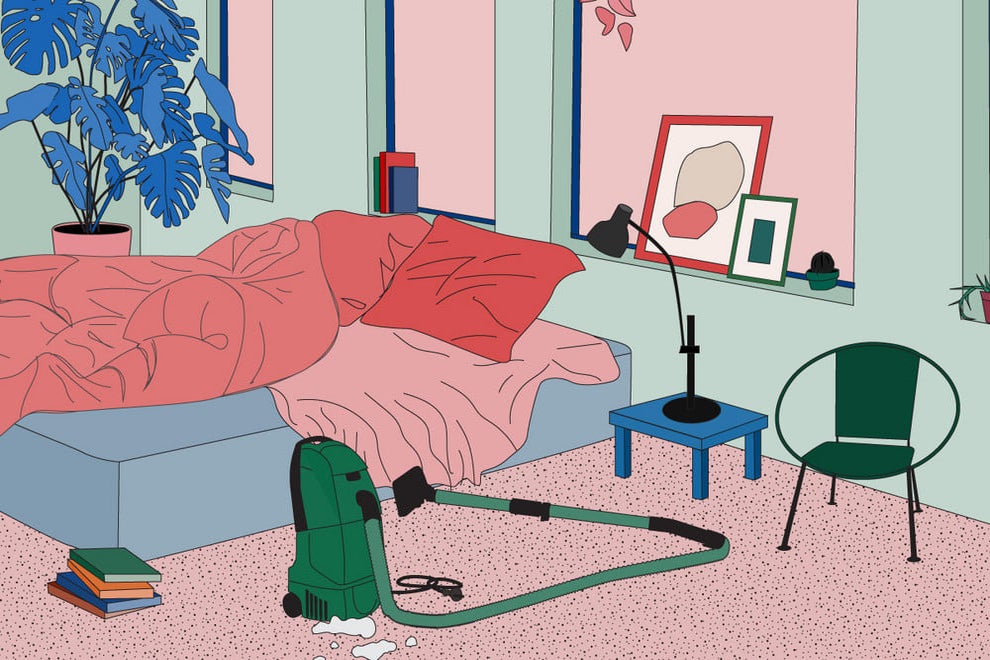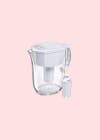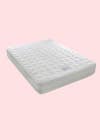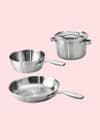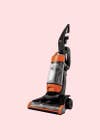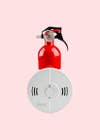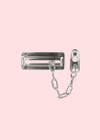The Home Essentials You Should Be Replacing in the New Year
It’s time to toss these worn-out items.
Published Jul 5, 2018 6:52 PM
We may earn revenue from the products available on this page and participate in affiliate programs.
As much as we love giving our walls a fresh coat of paint or splurging (sort of) on a new couch to give our homes a new look for the new year, there are some less glamorous items to keep in mind. Making decorative updates may be undeniably more fun, but utilitarian fixes that need to be made are arguably more important.
We spoke to four organizing pros and design experts from Thumbtack to get their professional opinion on which items to toss out as we ready our homes for the year ahead. Take a look below to discover when you should be replacing these key household items, according to your lifestyle.
Replace your household filters…
For your refrigerator, typically bi-annually, if the fridge has a water filtration/dispenser function, which is pretty standard for today’s models. Replace your dishwasher filter quarterly (or every three months) and deep-clean your microwave oven hood bi-annually to avoid grease build up. Every spring, change your central air filter, and flush vents of debris and dust for a cleaner environment. As for your kitchen vent, change that out monthly or quarterly depending on how frequently one cooks.” — Jacquelin C. Franklin, C.I.D founder of NICHE design group.
Energy Star suggests replacing your HVAC every month, especially during the winter and summer months, when your HVAC unit gets the most use. At the bare minimum, don’t let three months go by without swapping your dirty one out for a new one.” — Debby Adelman; Founder of Creative Spaces Interior Design.
You should replace your air filters every six months for the average home; if you have pets or allergies, replace every two-three months. Vent food filters can be washed or popped in the dishwasher every three months.” — Molly Cole; Founder of home organization company Cole + Co.
Replace your pillows and duvets…
“Natural filled duvets are breathable and absorb body moisture in the night, releasing it when the duvet is aired. Cared for properly, goose down duvets can last up to 40 years, duck down can last 30-35 years, and feather down duvets have a life expectancy of around 15-20 years. There is no good evidence for how long most pillows last. Many (though not all) sleep experts say that if you fold your pillow in half and it doesn’t spring open straight away by itself then it’s dead; it can’t support your head and neck, so bin it.” — Adelman.
“Depending upon the quality of the pillow (and allergies), it can vary. I usually instruct our clients to change them out at least yearly for the average everyday pillow. A higher quality pillow or memory foam pillow can be a little longer, between 12-16 months. We recommend changing and washing pillowcases weekly. Depending on the type and quality, duvets can be kept quite a long time. We wash the covers and the inserts at the change of the seasons for a quick and inexpensive refresh of the room.” — Joe Human the Founder of Designs by Human.
Replace your water filter…
“Every 40 gallons; or for hard installed filtration, every 100 gallons. A safe rule for carafe filters is to follow the gauge that is included. For under sink or installed water filters, three or four months is a good timeline.”—Franklin.
“This can really depend on the type of filter you have and your water quality. As a rule of thumb, more often is better if you are unsure. Where water is hard or contains a lot of minerals, it can clog the filters faster than in areas where water is already more filtered before coming into your home. Our clients that are in NYC generally have a longer life on their water filters than clients out in Western states because of different municipalities’ filtering processes.” — Human.
Replace your mattress…
“Most mattresses have a life of seven to ten years.” — Adelman.
“This can be a pain point (literally) with clients, and I know a lot of us are guilty—myself included—for keeping our beloved mattresses longer than we should. But the general mattress lifespan is about five to seven years. Similar to pillows, make sure you wash and change sheets regularly. If you’re in a humid or damp climate home that is unusually cool all the time, give the mattress time to air out on a weekly basis when you change your sheets or bedding. If the mattress is in a room with sun, let it shine! Sun can help dry out the mattress if it is damp (we sweat and create moisture at night when we sleep). Additionally, vacuuming and lint rolling it regularly can help extend its life. Higher quality mattresses can be changed post-10 years.” — Human.
Replace your pots and pans…
“This truly depends on the quality of the pots and pans. A great set can last forever. If the handles or covers are bent, coming loose, or are broken, replace them. A general rule is that nonstick should be replaced immediately if it is scratched, as the nonstick surface will peel off into the food, which is not good for one’s health. Use plastic or wood utensils when cooking.” — Franklin.
Replace your vacuum cleaner/filters…
“A good vacuum cleaner can last a long time with proper maintenance. Keep the filters changed and obstructions out of it, and if you notice the power slipping it can be time to change. In most cases the average vacuum usually lasts between three and five years.” — Human.
“The average is about eight years, though that number varies widely by brand. You can help the [lifespan] by a few simple tips. Don’t let the bag or bin get filled to the brim, which can clog the machine. Clean or replace the filter whenever it’s dirty. Every few weeks, clear the motorized brush of tangled hair, string, and other fibers, which can stress the motor. Check the hose for clogs occasionally.” — Adelman.
Replace your fire extinguisher/smoke detectors…
“Non-rechargeable fire extinguishers generally have a six year life expectancy, but keep in mind that life expectancy depends on a number of factors. A fire extinguisher should be tested weekly according to the user’s manual. The life expectancy of smoke alarms is generally 10 years, after which point their sensors can begin to lose sensitivity. The test button only confirms that the battery, electronics, and alert system are working; it doesn’t mean that the smoke sensor is working.” — Adelman.
Replace your door locks…
“If you are a renter, and you’re allowed to change your locks (always check with your landlord), we always suggest changing them at each move in/out. For homeowners who have lived in a home a long time, changing the locks may not always be necessary unless you have a lot of visitors that you hand out keys to.” — Human.
“You should definitely change them if you’ve ever had a break in or other incident. If the locks are worn out or easily broken, consider an upgrade to something more secure.” — Cole.
See more tips on cleaning:
How to Clean the Hard-to-Reach Areas in Your Home
Our Favorite Hacks to Organize Your Bedroom Once and For All
